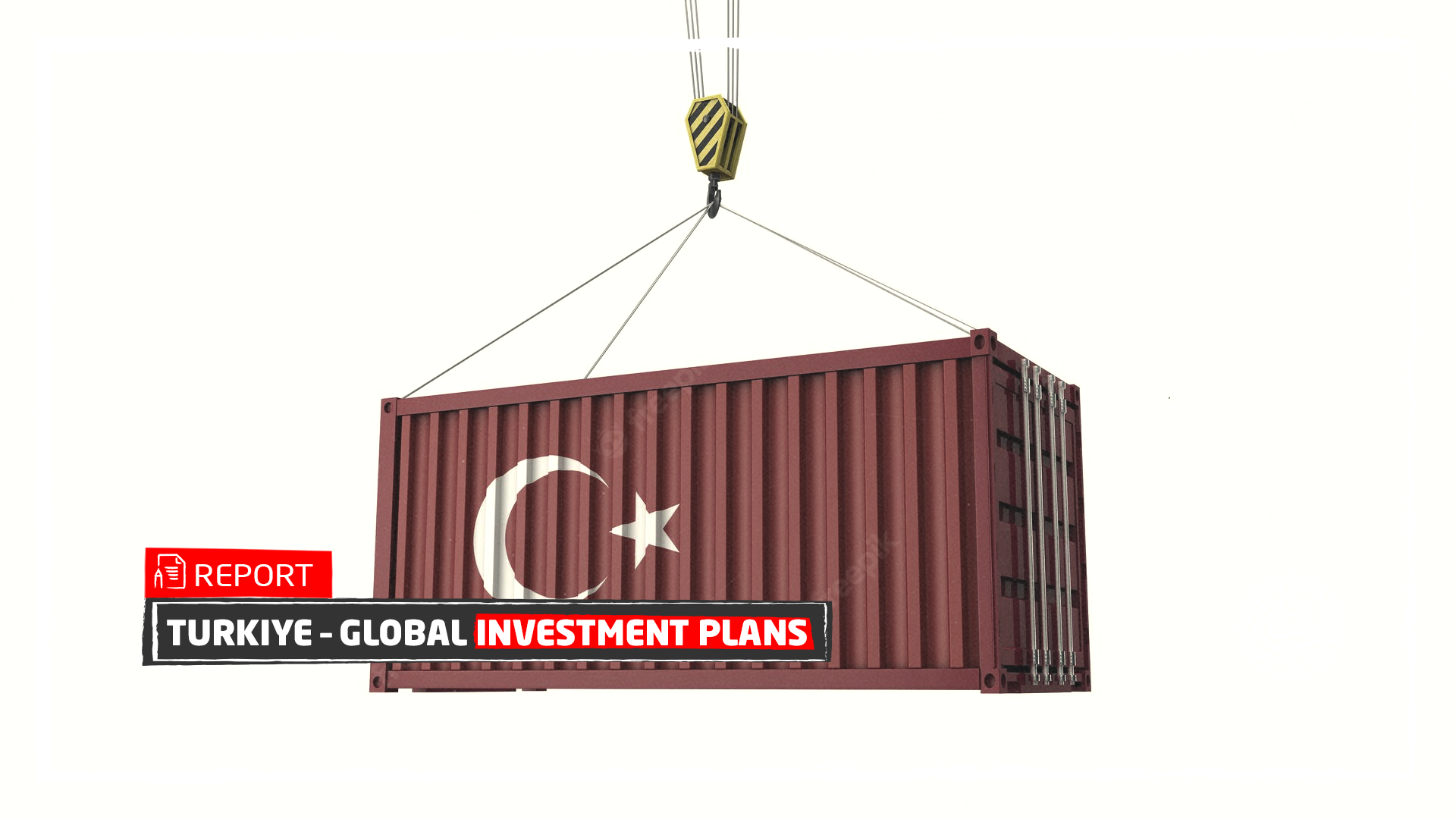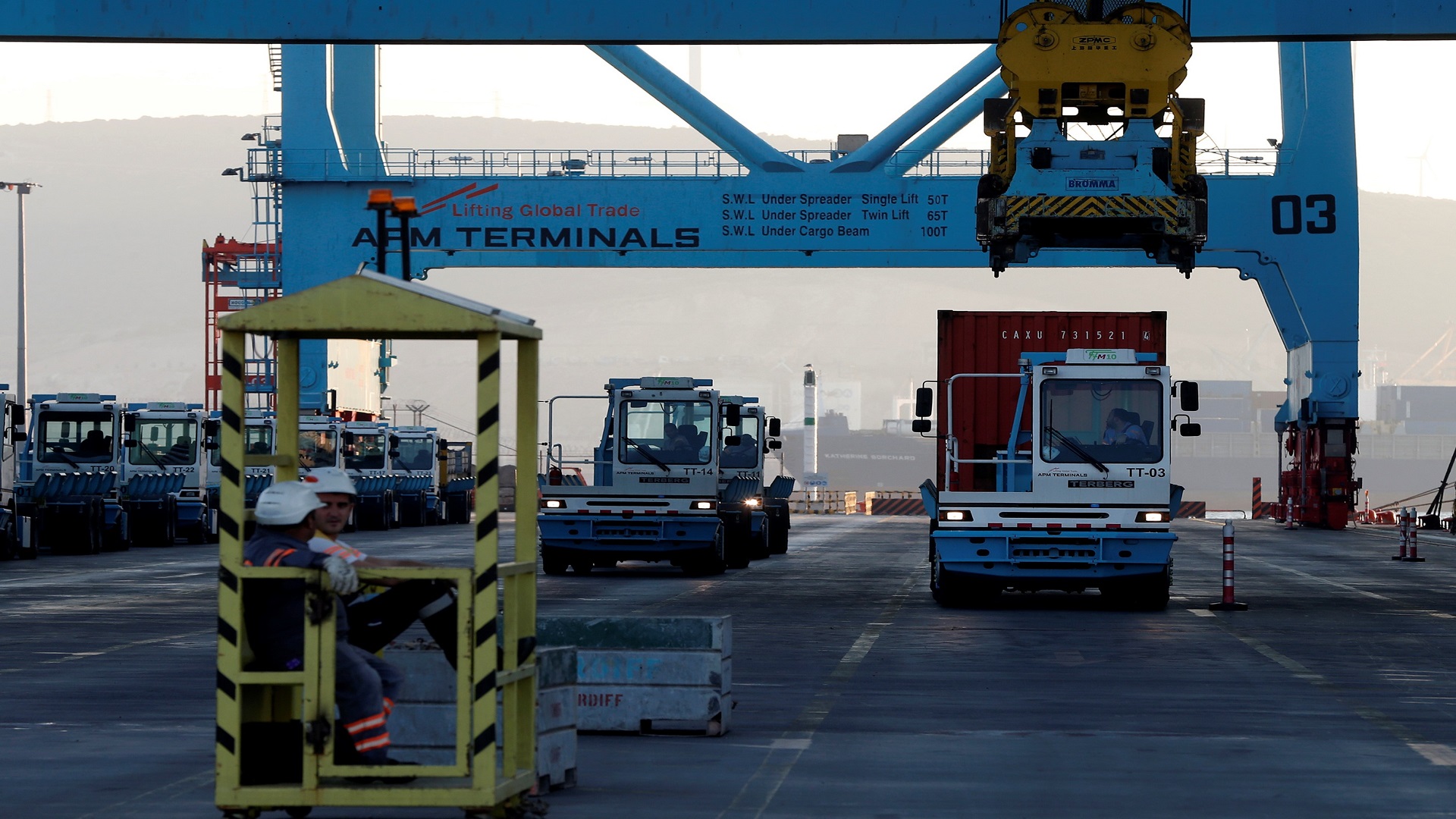Strategic Location: Will Turkiye Become an Important Hub in the Global Supply Chain?

For centuries, Turkiye, A country known for its rich culture influenced by East and West, has been a melting pot of trade and commerce, but during the last two decades, it was able to double its exports 7 times, to reach a value of $254.2 billion in 2022, as a result of exports to more than 200 countries.
Over the past year, several European-based international companies operating in areas such as furniture, pharmaceuticals, textiles, and packaging have announced their new investment plans in Turkiye.
According to the latest analysis by the international rating agency Fitch, Turkiye is the country that will gain the most from the change in supply chains in Europe, followed by the Czech Republic, Poland, and Romania.
The huge increase in long-distance transportation costs has helped shift the eyes of international companies to Turkiye, which offers significant advantages in terms of location and cost.
While in the digital age, Turkiye has become the center of one of the fast-growing e-commerce markets in Asia, growing at a rate of 15% annually.
In 2021, e-commerce transactions accounted for 18% of Turkiye’s domestic trade revenue, and total sales reached $16.3 billion, increasing global business focus on Turkiye for market expansion.
E-commerce has also become a magnet for venture finance and a symbol of the country’s digital economy, and home to a couple of decacorn startups (companies valued at over $10 billion): Trendyol and Getir.
Alibaba in Turkiye
The president of the giant Chinese e-commerce company, Alibaba, Michael Evans, said that his company plans to establish a logistics center at Istanbul Airport and a data center near the capital, Ankara, with an investment exceeding $1 billion.
In an interview with the Turkish newspaper Sabah, Evans said that the company is looking forward to investing more in Europe and the Middle East this year, and that it sees Turkiye as a very strong production base.
“We have a serious investment plan in Turkiye. We can evaluate plans for electronic exports from here to Europe, the Middle East, and the Far East region,” he continued.
Evans, ex-CEO of Goldman Sachs Group, added that Alibaba is targeting Turkiye for expansion because of its strong production capacity that can support e-commerce and become part of the company’s supply chain in Europe and the Middle East.
He also pointed out that there is a great productive power in Turkiye, which is the most beneficial country in the world in this sense, indicating that there are always fluctuations in economies, but there are opportunities when one looks at the long term, stressing that they will continue to invest in small and medium enterprises and with merchants in Turkiye.
He added that they will transfer the Turkish productive power and export potential to Europe and the Middle East, stressing that many G-20 countries have consumer capacity, but there is no production capacity, unlike Turkiye, which has high-tech infrastructure and production power at the fore.

Having become a strategic investor in the Turkish company since 2018, Alibaba supports the Trendyol platform, which became the first Decacorn in Turkiye with a market value of about $16.5 billion following the end of a financing round in July 2021.
In 2018, after the startup’s success in attracting investments from inside and outside Turkiye, the Chinese company Alibaba bought about 75% of the Trendyol platform for $728 million.
Trendyol is Turkiye’s most valuable company, controlling 34% of the country’s e-commerce market, according to Bloomberg, citing Euromonitor data.
In October 2020, Trendyol entered the European market with a website serving 27 countries, including Italy, Spain, and the UK.
There are more than 15 million annual customers and 180 million monthly visitors to the Trendyol app on mobile, in addition to downloading the app more than 50 million times.
It is noteworthy that during the first half of 2022, the volume of e-commerce in Turkiye increased by 116% compared to the same period in the previous year, reaching 348 billion Turkish lira ($18.7 billion).

Great Investment Growth
During his participation in the event of the Turkish Exporters’ Assembly on January 2, 2023, Turkish President Recep Tayyip Erdogan said that his government aims to make Turkiye among the ten most exporting countries in the world.
He pointed out that Turkish exports continued to grow during 2022, despite the obstacles it faced, such as the consequences of the Coronavirus pandemic, the problems of global supply chains, and the Russian-Ukrainian war.
Therefore, Turkiye, which connects Europe and the Middle East, is intensifying its work in the field of incentives and logistics to take advantage of changes in global supply chains, while Turkish politicians are sending a message that our door is always open to foreign investors, according to a report published by Sabah newspaper on October 14, 2022.
President Recep Tayyip Erdogan has previously said in this context: “Anyone who trusts and invests in Turkiye will not regret it. On the contrary, he will be happy with the great profits that he will achieve.”
In turn, the president of the Investment Office of the Turkish Presidency, Burak Daglioglu, told AFP that “Turkiye encourages investments that would reduce foreign dependence, increase job opportunities and accelerate technological transformation in the country.”
“We believe that Turkiye will occupy a more important position in global supply chains and will attract large investments through what it provides to investors at this stage,” Daglioglu added.

Turkiye has witnessed radical changes during the last two decades, coinciding with the Justice and Development Party’s assumption of power in the country, which was interested in increasing the exports, and aspires to raise the value of its exports to $300 billion in 2023.
It is noteworthy that Turkiye benefited from its location close to Europe after the Coronavirus crisis, the state of closure in China, the high cost of shipping, and the disruption of supply chains, so Turkiye became an alternative choice for Europeans to reduce their dependence on Asia.
As a result, European companies that were dependent on Asian countries such as China for production and supply began to move towards regions such as Turkiye, due to the quality of production and logistical opportunities, in addition to delays in production, high shipping costs, and the container crisis, according to Sabah newspaper report.
The newspaper revealed that the supply shock in February 2022, and the demand shock that followed the closure of the global economy, revealed weaknesses in the manufacturing strategies and supply chains of companies almost everywhere in the world.
On the other hand, Turkiye’s strategic location has been a magnet for multinational companies, becoming a center for production, export, and management in the region, enabling it to participate strongly in the global value chain.
The Swedish furniture company IKEA, the Polish ready-to-wear company LBB, the German pharmaceutical company Boehringer Ingelheim, and the Belgian packaging company DW Reusables recently announced investments in Turkiye.
According to another report by Sabah newspaper in 2021, Turkiye has a customs union with the European Union, and free trade agreements with more than 20 countries.
Turkiye is also 4 hours away by plane from the markets of Europe, the Middle East, North Africa, and Central Asia, which are markets in which 1.3 billion people live, and the gross domestic product of which is $26 trillion.
In addition, Turkiye has a diversified manufacturing base with strong links to global value chains, supported by advanced infrastructure and uninterrupted business services, as well as incentives for production and employment and exemptions for investors.

New Global Supply Chain
A study prepared by Reuters Events, a research organization affiliated with Reuters, and the Danish company, Maersk’s SeaLand, one of the largest and most famous companies operating in the field of containers and shipping in the world, showed that Turkiye ranked among the top three for European companies in the supply chain that is forming again after the pandemic.
According to the study, Turkiye ranked third for European companies after Poland and Germany in obtaining products and importing part or all of the products from abroad.
According to the same study, Turkiye ranked eighth globally in supply chains for global companies after Vietnam, India, Germany, Poland, the United States, China, and Mexico.
It noted that Turkiye, with its geographical location and human potential, is a very important and attractive center for European companies in several sectors, including textiles, chemicals, and automobiles.
The study indicated that companies attached greater importance to speed and flexibility to reduce risks compared to the pre-pandemic period to reduce costs in the supply chain.

In turn, Dr. Yahya Sayed Omar indicated in a statement to Al-Estiklal that “the Turkish economy is the fastest growing among the G-20 countries, but that does not mean that it is better than the economies of other G-20 countries. As the size of the economy of some of these countries is larger than the size of the Turkish economy, but in general, the Turkish economic growth rate is a positive indicator.”
Regarding the future of the Turkish economy, Dr. Sayed Omar expected its strength to increase during the current decade, noting that it faces serious challenges, most notably: high inflation, the fluctuation of the value of the Turkish lira, and the fluctuation of the interest rate, as these factors are negative factors for foreign investors.
“If the Turkish government is able to address the previous challenges, the growth opportunities for the Turkish economy will clearly increase, and here the political impact on the economy cannot be overlooked. The US-Turkish political dispute in some files has negatively affected the Turkish economy, but on the other hand, the climate of political calm in the region led by Turkiye may reflect positively on the future of the Turkish economy,” the economic researcher said.
In another context, Dr. Sayed Omar pointed out that “global supply chains have been exposed to several crises in the past few years, which prompted many countries of the world to search for solutions and alternatives, in addition to Turkiye’s geographical location in the middle between Europe, the Middle East, Russia, and East Asian countries, which made it a potential and reliable alternative.”
“The Turkish government is working intensively to invest in this economic opportunity, which has strategic dimensions, by intensifying its investments in the field of infrastructure and encouraging foreign direct investment,” he said.
With regard to the restructuring of global supply chains, Dr. Sayed Omar said that “it is noticeable that there is an international trend to shift from global to regional. The globalization of supply chains, which made any global crisis spread to all countries of the world, while regionalism may provide protection from crisis repercussions amid a current trend to achieve regional economic integration, which will make Turkiye a potential main station for supply chains for Europe.”
Sources
- Chinese giant Alibaba's President Evans visits Turkuvaz Media Group
- Turkish exports hit all-time high of $254.2B, President Erdogan announces
- Why the UAE’s Opontia is now focusing on Turkiye
- The crisis in Europe changed the balance: Turkiye will be the center country [Turkish]
- Turkiye, the world's new supply base [Turkish]
- Turkiye’s Trendyol Valuation Set to Hit $16.5 Billion
- The volume of e-commerce in Turkiye increased by 116% in the first half [Turkish]
- Turkiye dreams of becoming the factory of the world at the gates of Europe [Arabic]
- How unprecedented disruptions are reshaping global supply chains [Study]








